- Home
- Nora Roberts
Boundary Lines
Boundary Lines Read online
Begin Reading
Table of Contents
About the Author
Copyright Page
Thank you for buying this
St. Martin’s Press ebook.
To receive special offers, bonus content,
and info on new releases and other great reads,
sign up for our newsletters.
Or visit us online at
us.macmillan.com/newslettersignup
For email updates on the author, click here.
The author and publisher have provided this e-book to you for your personal use only. You may not make this e-book publicly available in any way. Copyright infringement is against the law. If you believe the copy of this e-book you are reading infringes on the author’s copyright, please notify the publisher at: us.macmillanusa.com/piracy.
For Ruth Langan,
for all the years.
Chapter One
The wind whipped against her cheeks. It flowed through her hair, smelling faintly of spring and growing things. Jillian lifted her face to it, as much in challenge as in appreciation. Beneath her, the sleek mare strained for more speed. They’d ride, two free spirits, as long as the sun stayed high.
Short, tough grass was crushed under hooves, along with stray wildflowers. Jillian gave no thought to the buttercups as she crossed to the path. Here the soil was hard, chestnut in color and bordered by the silver-gray sage.
There were no trees along this rough, open plain, but Jillian wasn’t looking for shade. She galloped by a field of wheat bleaching in the sun with hardly a stray breeze to rustle it. Farther on there was hay, acres of it, nearly ready for the first harvesting. She heard and recognized the call of a meadowlark. But she wasn’t a farmer. If someone had termed her one, Jillian would have laughed or bristled, depending on her mood.
The crops were grown because they were needed, in the same way the vegetable patch was sown and tended. Growing your own feed made you self-reliant. There was nothing more important than that in Jillian’s estimation. In a good year there were enough crops left over to bring in a few extra dollars. The few extra dollars would buy more cattle. It was always the cattle.
She was a rancher—like her grandfather had been, and his father before him.
The land stretched as far as she could see. Her land. It was rolling and rich. Acre after acre of grain sprouted up, and beyond it were the plains and pastures where the cattle and horses grazed. But she wasn’t riding fence today, counting head, or poring over the books in her grandfather’s leather-and-oak office. Today she wanted freedom, and was taking it.
Jillian hadn’t been raised on the rugged, spacious plains of Montana. She hadn’t been born in the saddle. She’d grown up in Chicago because her father had chosen medicine over ranching, and east over west. Jillian hadn’t blamed him as her grandfather had—it was a matter of choice. Everyone was entitled to the life they chose. That was why she’d come here, back to her heritage, five years before when she’d turned twenty.
At the top of the hill Jillian stopped the mare. From here she could see over the planted fields to the pastures, fenced in with wire that could hardly be seen from that distance. It gave the illusion of open range where the cattle could roam at will. Once, it would’ve been like that, she mused as she tossed her hair back over her shoulder. If she narrowed her eyes, she could almost see it—open, free—the way it had been when her ancestors had first come to settle. The gold rush had brought them, but the land had kept them. It kept her.
Gold, she thought with a shake of her head. Who needed gold when there was priceless wealth in space alone? She preferred the spread of land with its isolated mountains and valleys. If her people had gone farther west, into the higher mountains, her great-great-grandparents might have toiled in the streams and the mines. They might have staked their claim there, plucking out nuggets and digging out gold dust, but they would never have found anything richer than this. Jillian had understood the land’s worth and its allure the first moment she’d seen it.
She’d been ten. At her grandfather’s invitation—command, Jillian corrected with a smirk—both she and her brother, Marc, had made the trip west, to Utopia. Marc had been there before, of course. He’d been sixteen and quietly capable in the way of their father. And no more interested in ranching than his father had been.
Her first glimpse of the ranch hadn’t surprised her, though it wasn’t what many children might’ve expected after years of exposure to western cinema. It was vast, and somehow tidy. Paddocks, stables, barns, and the sturdy charm of the ranch house itself. Even at ten, even after one look, Jillian had known she hadn’t been meant for the streets and sidewalks of Chicago, but for this open sky and endless land. At ten, she’d had her first experience with love at first sight.
But it wasn’t love at first sight with her grandfather. He’d been a tough, weathered, opinionated old man. The ranch and his herd had been his life. He hadn’t the least idea what to do with a spindly girl who happened to be his son’s daughter. They’d circled each other warily for days, until he’d made the mistake of letting out some caustic remark about her father and his choice of pills and needles. Quick tempered, Jillian had flown to her father’s defense. They’d ended up shouting at each other, Jillian red-faced and dry-eyed even after being threatened with a razor strap.
They’d parted at the end of that visit with a combination of mutual respect and dislike. Then he’d sent her a custom-made, buff-colored Stetson for her birthday. And it began . . .
Perhaps they’d grown to love one another so deeply because they’d taken their time about it. Those sporadic weeks during her adolescence he’d taught her everything, hardly seeming to teach at all: how to gauge the weather by the smell of the air, the look of the sky; how to deliver a breech calf; how to ride fence and herd a steer. She’d called him Clay because they’d been friends. And when she’d tried her first and only plug of tobacco, he’d held her head when she’d been sick. He hadn’t lectured.
When his eyes had grown weak, Jillian had taken over the books. They’d never discussed it—just as they’d never discussed that her move there in the summer of her twentieth year would be permanent. When his illness had begun to take over, she’d gradually assumed the responsibilities of the ranch, though no words had passed between them to make it official.
When he died, the ranch was hers. Jillian hadn’t needed to hear the will read to know it. Clay had known she would stay. She’d left the east behind—and if there were memories from there that still twisted inside her, she buried them. More easily than she’d buried her grandfather.
It was herself she grieved for, and knowing it made her impatient. Clay had lived long and hard, doing as he chose the way he chose. His illness had wasted him, and would have brought him pain and humiliation had it continued. He would have hated that, would have railed at her if he could have seen how she’d wept over him.
God Almighty, girl! What’re you wasting time here for? Don’t you know there’s a ranch to run? Get some hands out to check the fence in the west forty before we’ve got cattle roaming all over Montana.
Yes, she thought with a half smile. He’d have said something like that—cursed her a bit, then would’ve turned away with a grunt. Of course, she’d have cursed right back at him.
“You mangy old bear,” she muttered. “I’m going to turn Utopia into the best ranch in Montana just to spite you.” Laughing, she threw her face up to the sky. “See if I don’t!”
Sensing her change of mood, the mare began to dance impatiently, tossing her head. “All right, Delilah.” Jillian leaned over to pat her creamy neck. “We’ve got all afternoon.” In a deft move she turned the mare around and started off at an easy lope.
There weren’t
many free hours like this, so they were prized. As it was, Jillian knew she’d stolen them. That made it all the sweeter. If she had to work eighteen hours tomorrow to make up for it, she’d do it without complaint. Even the bookwork, she thought with a sigh. Though there was that sick heifer that needed watching, and the damn Jeep that’d broken down for the third time this month. And the fence along the boundary line. The Murdock boundary line, she thought with a grimace.
The feud between the Barons and the Murdocks stretched back to the early 1900s when Noah Baron, her great-grandfather, came to southeast Montana. He’d meant to go on, to the mountains and the gold, but had stayed to homestead. The Murdocks had already been there, with their vast, rich ranch. The Barons had been peasants to them, intruders doomed to fail—or to be driven out. Jillian gritted her teeth as she remembered the stories her grandfather had told her: cut fences, stolen cattle, ruined crops.
But the Barons had stayed, survived, and succeeded. No, they didn’t have the amount of land the Murdocks did, or the money, but they knew how to make the best use of what they did have. If her grandfather had struck oil as the Murdocks had, Jillian thought with a smirk, they could have afforded to specialize in purebred beef as well. That had been a matter of chance, not skill.
She told herself she didn’t care about the purebred part of it. Let the Murdock clan wave their blue ribbons and shout about improving the line. She’d raise her Herefords and shorthorns and get the best price for them at the Exchange. Baron beef was prime, and everyone knew it.
When was the last time one of the high-and-mighty Murdocks rode the miles of fence, sweating under the sun while checking for a break? When was the last time one of them had eaten dust on a drive? Jillian knew for a fact that Paul J. Murdock, her grandfather’s contemporary, hadn’t bothered to ride fence or flank cattle in more than a year.
She let out a short, derisive laugh. All they knew about were the figures in the account books and politicking. By the time she was finished, Utopia would make the Double M look like a dude ranch.
The idea put her in a better mood, so that the line between her brows vanished. She wouldn’t think of the Murdocks today, or of the backbreaking work that promised to begin before the sun came up tomorrow. She would think only of the sweetness of these stolen hours, of the rich smell of spring . . . and the endless hard blue of the sky.
Jillian knew this path well. It ran along the westernmost tip of her land. Too tough for the plow, too stubborn for grazing, it was left alone. It was here she always came when she wanted both a sense of solitude and excitement. No one else came here, from her own ranch or from the Murdock spread that ran parallel to it. Even the fence that had once formed the boundary had fallen years before, and had been forgotten. No one cared about this little slice of useless land but her, which made her care all the more.
Now there were a few trees, the cottonwood and aspen just beginning to green. Over the sound of the mare’s hooves she heard a warbler begin to sing. There might be coyotes too, and certainly rattlesnakes. Jillian wasn’t so enchanted she didn’t remember that. There was a rifle, oiled and loaded, strapped to the back of her saddle.
The mare scented the water from the pond, and Jillian let her have her head. The thought of stripping off her sweaty clothes and diving in appealed immensely. Five minutes in that clear, icy water would be exhilarating, and Delilah could rest and drink before they began the long trip back. Spotting the glistening water, Jillian let the reins drop, relaxing. Her grandfather would have cursed her for her lack of attention, but she was already thinking about the luxury of sliding naked into the cold water, then drying in the sun.
But the mare scented something else. Abruptly she reared, plunging so that Jillian’s first thought was rattler. While she struggled to control Delilah with one hand, she reached behind for the rifle. Before she could draw a breath, she was hurtling through space. Jillian only had time for one muttered oath before she landed bottom first in the pond. But she’d seen that the rattlesnake had legs.
Sputtering and furious, she struggled to her feet, wiping her wet hair out of her eyes so that she could glare at the man astride a buckskin stallion. Delilah danced nervously while he held the glistening stallion still.
He didn’t need to have his feet on the ground for her to see that he was tall. His hair was dark, waving thick and long beneath a black Stetson that shadowed a raw-boned, weathered face. His nose was straight and aristocratic, his mouth well shaped and solemn. Jillian didn’t take the time to admire the way he sat the stallion—with a casual sort of control that exuded confidence and power. What she did see was that his eyes were nearly as black as his hair. And laughing.
Narrowing her own, she spat at him, “What the hell are you doing on my land?”
He looked at her in silence, the only movement a very slow lifting of his left brow. Unlike Jillian, he was taking the time to admire. Her fiery hair was darkened almost to copper with the water and clung wetly to accent the elegance of bone and skin—fine boned, honey-toned skin. He could see the flash of green that was her eyes, dark as jade and dangerous as a cat’s. Her mouth, clamped together in fury, had a luxuriously full, promising lower lip that contrasted with the firm stubborn chin.
Casually he let his gaze slide down. She was a long one, he thought, with hardly more curves than a boy. But just now, with the shirt wet and snug as a second skin . . . Slowly his gaze climbed back to hers. She didn’t blush at the survey, though she recognized it. There wasn’t apprehension or fear in her eyes. Instead, she shot him a hard look that might have withered another man.
“I said,” Jillian began in a low, clipped voice, “what the hell are you doing on my land?”
Instead of answering he swung out of the saddle—the move smooth and economic enough to tell her he’d been in and out of one most of his life. He walked toward her with a loose, easy stride that still carried the air of command. Then he smiled. In one quick flash his face changed from dangerously sexy to dangerously charming. It was a smile that said, you can trust me . . . for the moment. He held out a hand.
“Ma’am.”
Jillian drew in one deep breath and let it out again. Ignoring the offered hand, she climbed out of the water by herself. Dripping, cold, but far from cooled off, Jillian stuck her hands on her hips. “You haven’t answered my question.”
Nerve, he thought, still studying her. She’s got plenty of that. Temper and—he noticed the way her chin was thrown up in challenge—arrogance. He liked the combination. Hooking his thumbs in his pockets, he shifted his weight, thinking it was a shame she’d dry off quickly in the full sun.
“This isn’t your land,” he said smoothly, with only a hint of a western drawl. “Miss . . .”
“Baron,” Jillian snapped. “And who the hell are you to tell me this isn’t my land?”
He tipped his hat with more insolence than respect.
“Aaron Murdock.” His lips twitched at her hiss of breath. “Boundary runs straight up through here.” He looked down at the toes of his boots inches away from the toes of hers as if he could see the line drawn there. “Cuts about clean down the middle of the pond.” He brought his gaze back to hers—mouth solemn, eyes laughing. “I think you landed on my side.”
Aaron Murdock, son and heir. Wasn’t he supposed to be out in Billings playing in their damn oil fields? Frowning, Jillian decided he didn’t look like the smooth college boy her grandfather had described to her. That was something she’d think about later. Right now, it was imperative she make her stand, and make it stick.
“If I landed on your side,” she said scathingly, “it was because you were lurking around with that.” She jerked her thumb at his horse. Gorgeous animal, she thought with an admiration she had to fight to conceal.
“Your hands were slack on the reins,” he pointed out mildly.
The truth of it only added fuel to the fire. “His scent spooked Delilah.”
“Delilah.” A flicker of amusement ran over his face as
he pushed back his hat and studied the smooth clean lines of Jillian’s mare. “Must’ve been fate,” he murmured. “Samson.” At the sound of his name the stallion walked over to nuzzle Aaron’s shoulder.
Jillian choked back a chuckle, but not in time to conceal the play of a small dimple at the side of her mouth. “Just remember what Samson’s fate was,” she retorted. “And keep him away from my mare.”
“A mighty pretty filly,” Aaron said easily. While he stroked his horse’s head his eyes remained on Jillian. “A bit high-strung,” he continued, “but well built. She’d breed well.”
Jillian’s eyes narrowed again. Aaron found he liked the way they glinted through the thick, luxurious lashes. “I’ll worry about her breeding, Murdock.” She planted her feet in the ground that soaked up the water still dripping from her. “What’re you doing up here?” she demanded. “You won’t find any oil.”
Aaron tilted his head. “I wasn’t looking for any. I wasn’t looking for a woman either.” Casually he reached over and lifted a strand of her heavy hair. “But I found one.”
Jillian felt that quick, breathless pressure in her chest and recognized it. Oh, no, she’d let that happen to her once before. She let her gaze drop down to where his long brown fingers toyed with the ends of her hair, then lifted it to his face again. “You wouldn’t want to lose that hand,” she said softly.
For a moment, his fingers tightened, as if he considered picking up the challenge she’d thrown down. Then, as casually as he’d captured her hair, he released it. “Testy, aren’t you?” Aaron said mildly. “But then, you Barons’ve always been quick to draw.”
“To defend,” Jillian corrected, standing her ground.
They measured each other a moment, both surprised to find the opposition so attractive. Tread carefully. The command went through each of their minds, though it was an order both habitually had trouble carrying out.

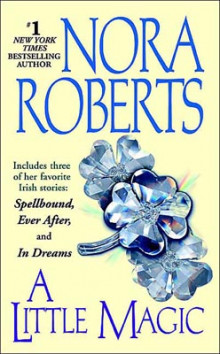 A Little Magic
A Little Magic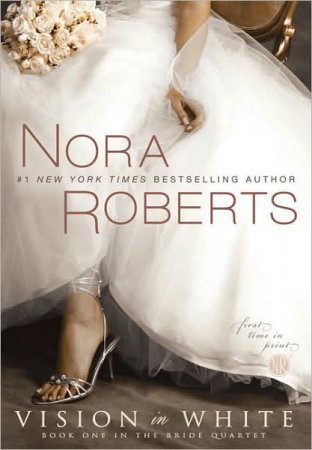 Vision in White
Vision in White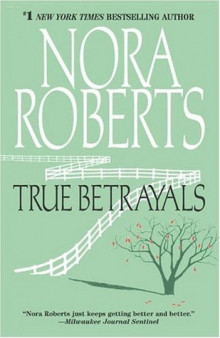 True Betrayals
True Betrayals The Next Always
The Next Always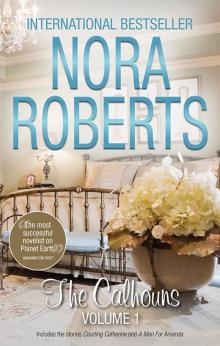 A Man for Amanda
A Man for Amanda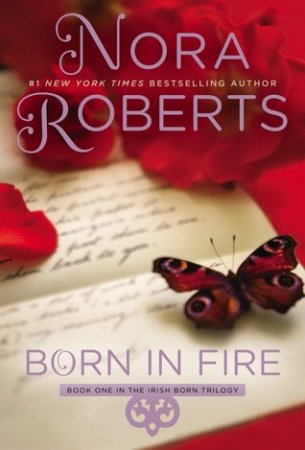 Born in Fire
Born in Fire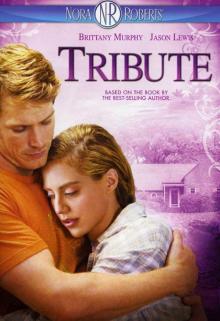 Tribute
Tribute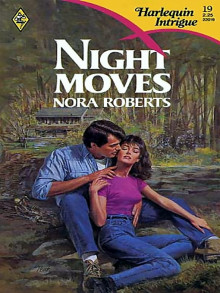 Night Moves
Night Moves Dance Upon the Air
Dance Upon the Air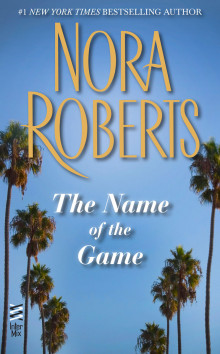 The Name of the Game
The Name of the Game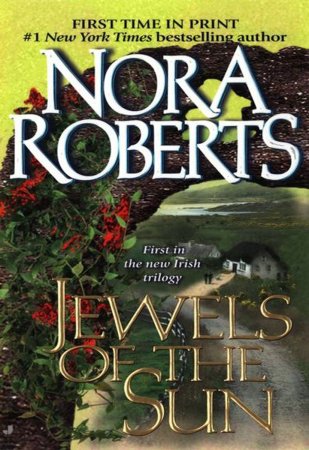 Jewels of the Sun
Jewels of the Sun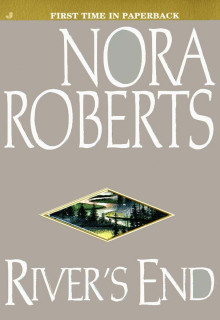 River's End
River's End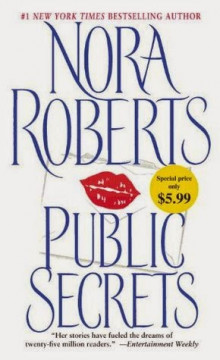 Public Secrets
Public Secrets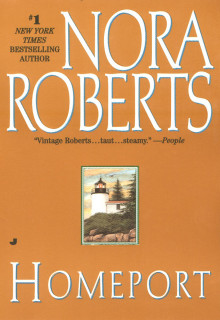 Homeport
Homeport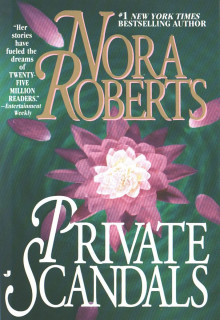 Private Scandals
Private Scandals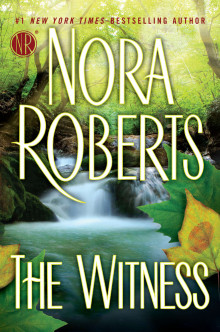 The Witness
The Witness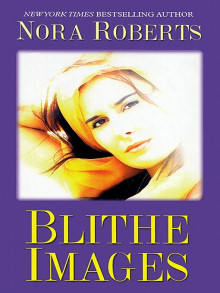 Blithe Images
Blithe Images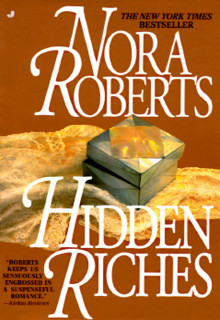 Hidden Riches
Hidden Riches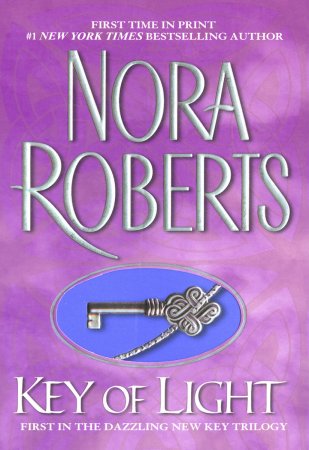 Key of Light
Key of Light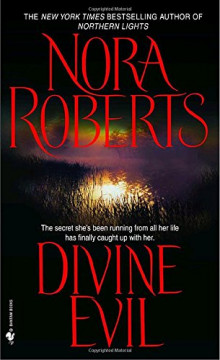 Divine Evil
Divine Evil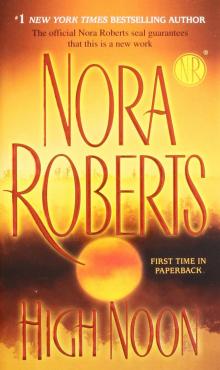 High Noon
High Noon Blue Dahlia
Blue Dahlia Sea Swept
Sea Swept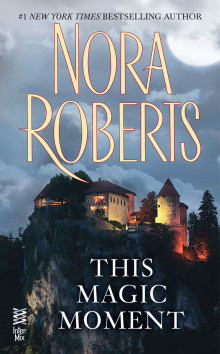 This Magic Moment
This Magic Moment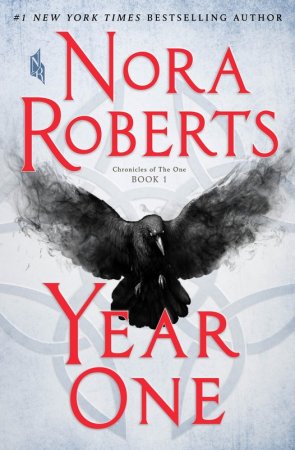 Year One
Year One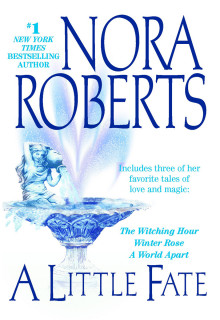 A Little Fate
A Little Fate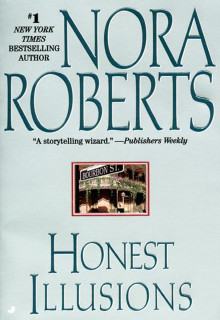 Honest Illusions
Honest Illusions The Reef
The Reef Shelter in Place
Shelter in Place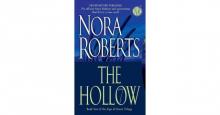 The Hollow
The Hollow Holding the Dream
Holding the Dream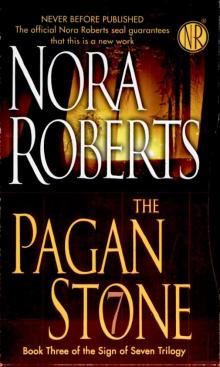 The Pagan Stone
The Pagan Stone Savour the Moment
Savour the Moment The Perfect Hope
The Perfect Hope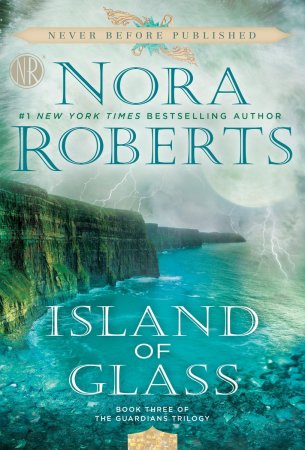 Island of Glass
Island of Glass Happy Ever After
Happy Ever After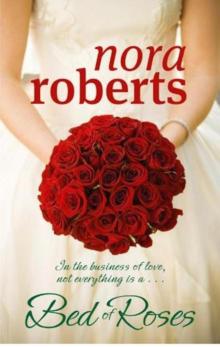 Bed of Roses
Bed of Roses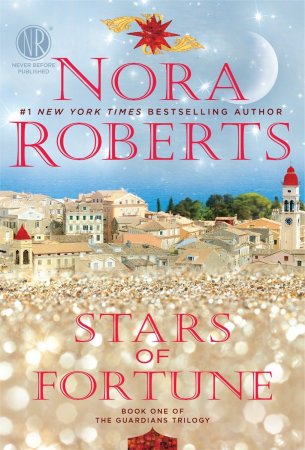 Stars of Fortune
Stars of Fortune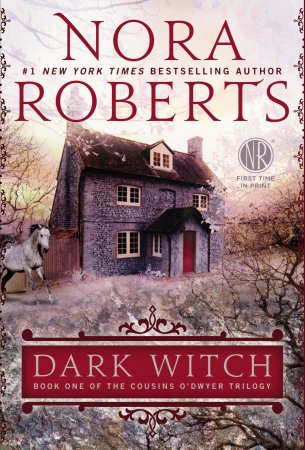 Dark Witch
Dark Witch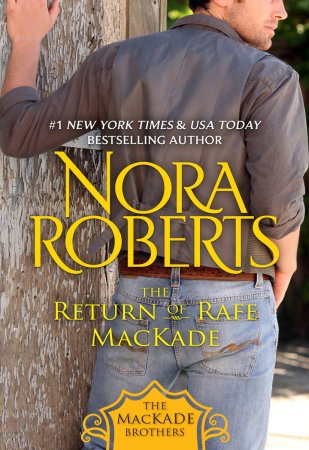 The Return of Rafe MacKade
The Return of Rafe MacKade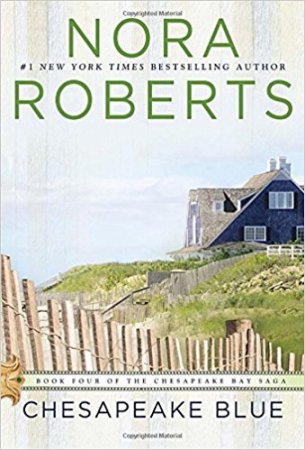 Chesapeake Blue
Chesapeake Blue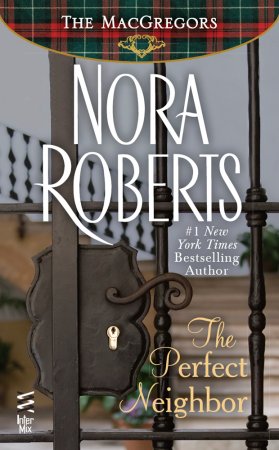 The Perfect Neighbor
The Perfect Neighbor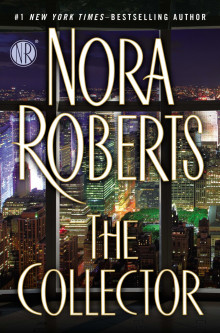 The Collector
The Collector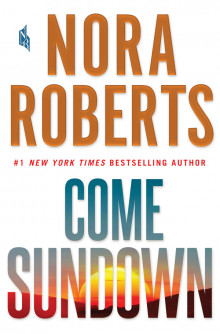 Come Sundown
Come Sundown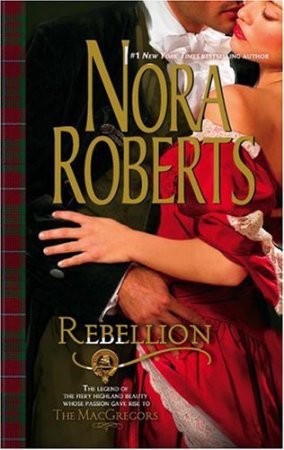 Rebellion
Rebellion Affaire Royale
Affaire Royale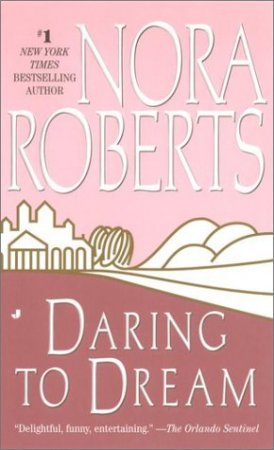 Daring to Dream
Daring to Dream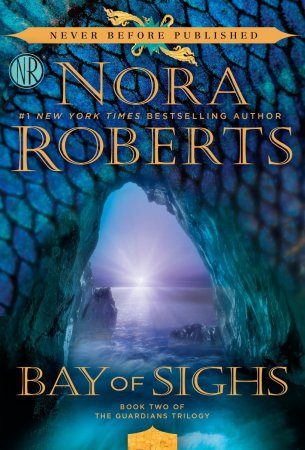 Bay of Sighs
Bay of Sighs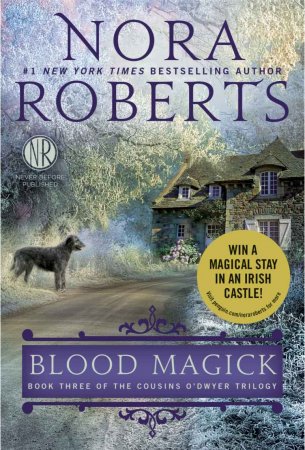 Blood Magick
Blood Magick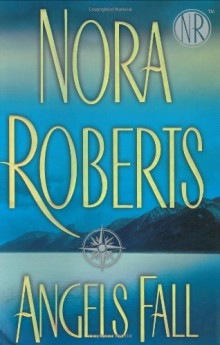 Angels Fall
Angels Fall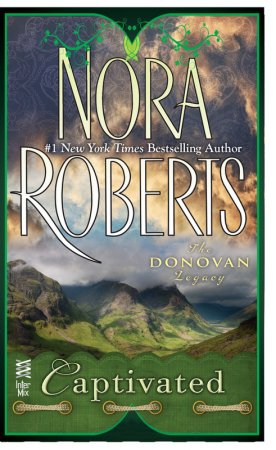 Captivated
Captivated The Last Boyfriend
The Last Boyfriend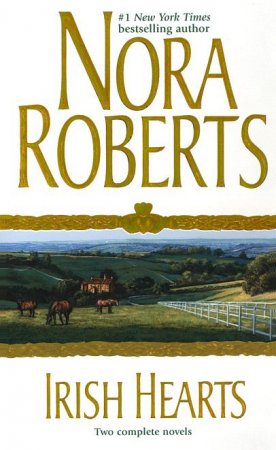 Irish Thoroughbred
Irish Thoroughbred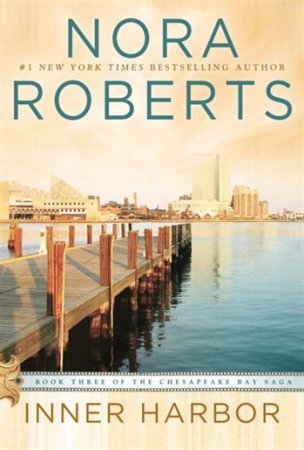 Inner Harbor
Inner Harbor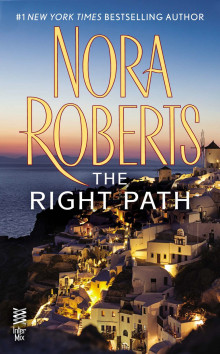 The Right Path
The Right Path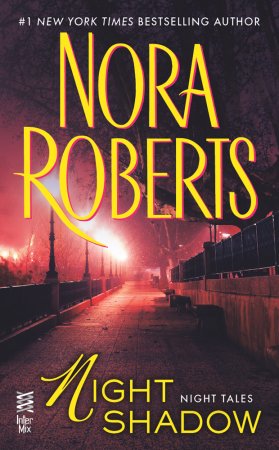 Night Shadow
Night Shadow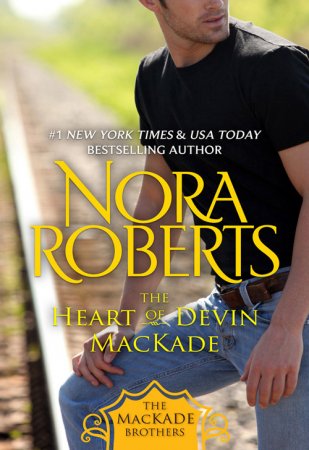 The Heart of Devin MacKade
The Heart of Devin MacKade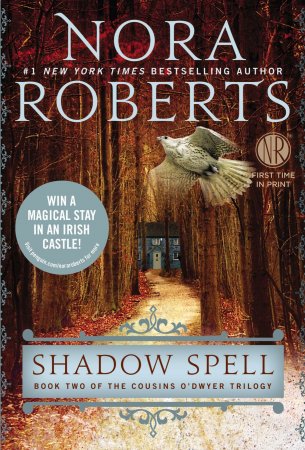 Shadow Spell
Shadow Spell The Playboy Prince
The Playboy Prince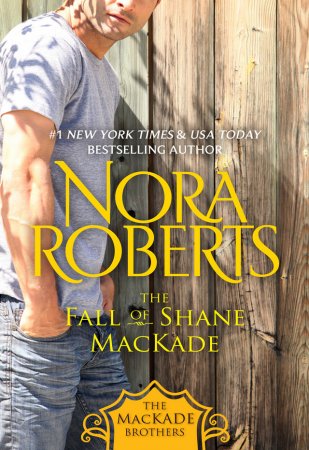 The Fall of Shane MacKade
The Fall of Shane MacKade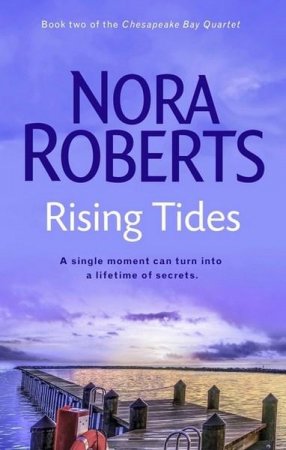 Rising Tides
Rising Tides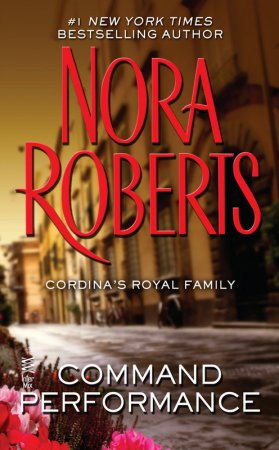 Command Performance
Command Performance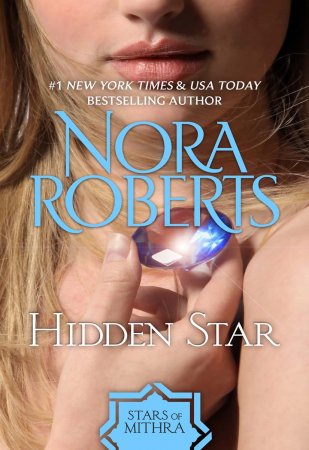 Hidden Star
Hidden Star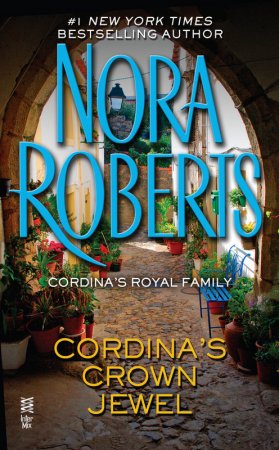 Cordina's Crown Jewel
Cordina's Crown Jewel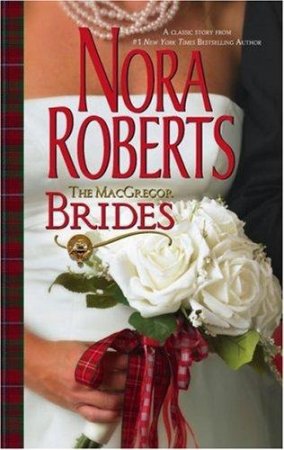 The MacGregor Brides
The MacGregor Brides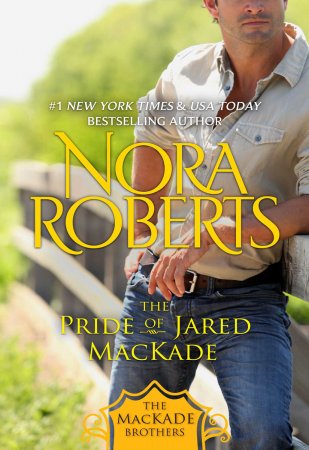 The Pride of Jared MacKade
The Pride of Jared MacKade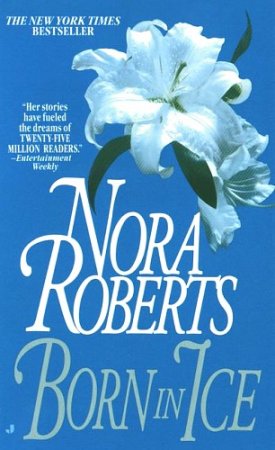 Born in Ice
Born in Ice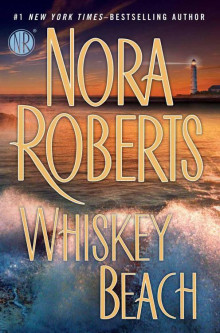 Whiskey Beach
Whiskey Beach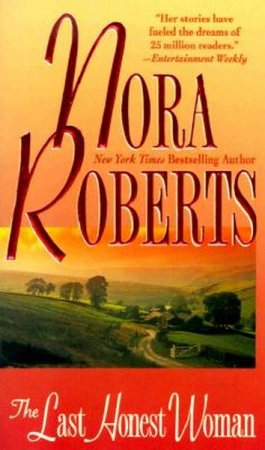 The Last Honest Woman
The Last Honest Woman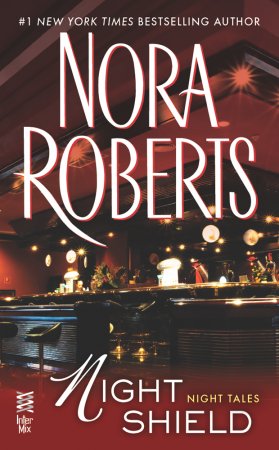 Night Shield
Night Shield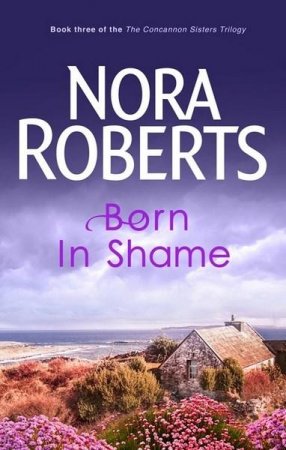 Born in Shame
Born in Shame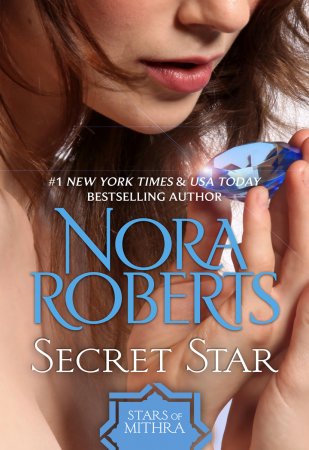 Secret Star
Secret Star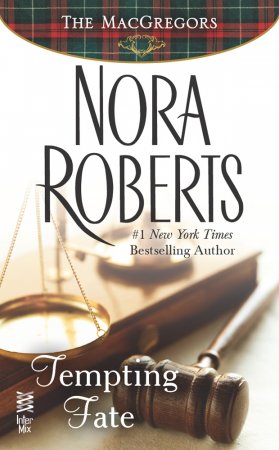 Tempting Fate
Tempting Fate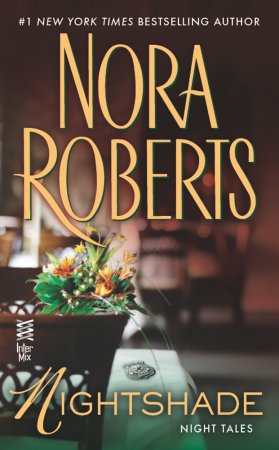 Nightshade
Nightshade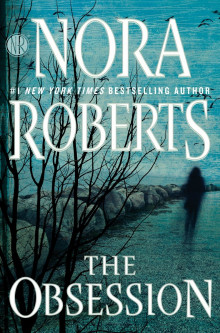 The Obsession
The Obsession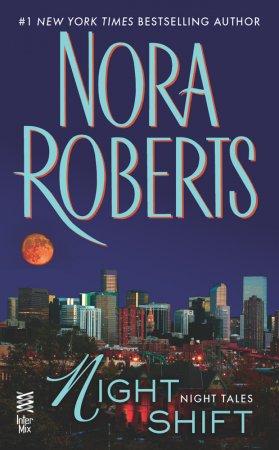 Night Shift
Night Shift Playing The Odds
Playing The Odds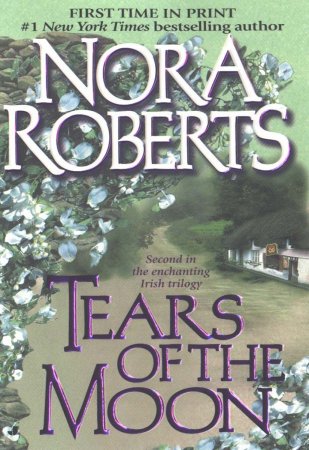 Tears of the Moon
Tears of the Moon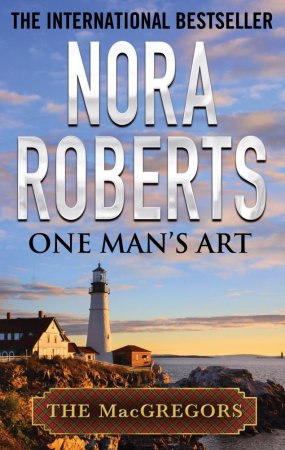 One Man's Art
One Man's Art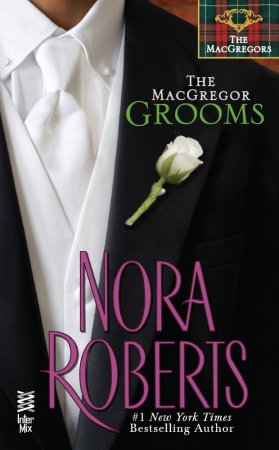 The MacGregor Groom
The MacGregor Groom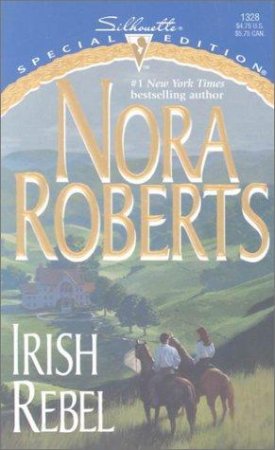 Irish Rebel
Irish Rebel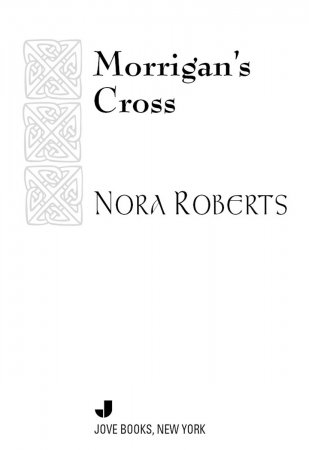 Morrigan's Cross
Morrigan's Cross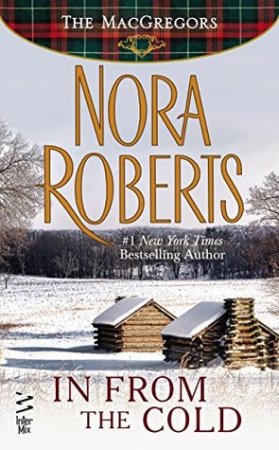 In From The Cold
In From The Cold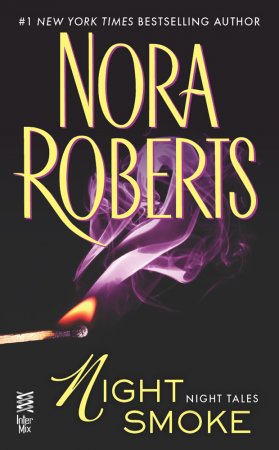 Night Smoke
Night Smoke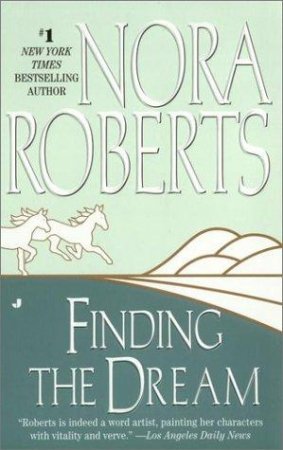 Finding the Dream
Finding the Dream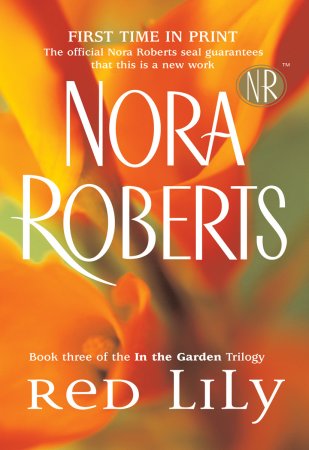 Red Lily
Red Lily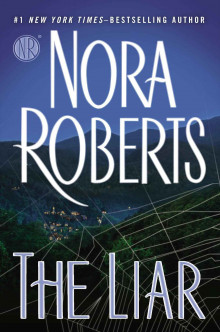 The Liar
The Liar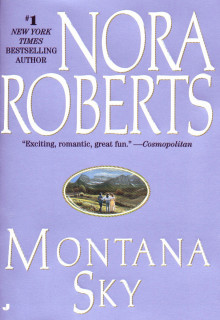 Montana Sky
Montana Sky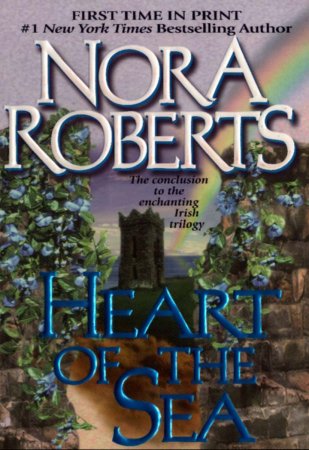 Heart of the Sea
Heart of the Sea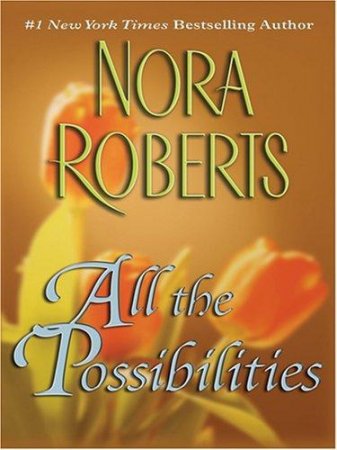 All The Possibilities
All The Possibilities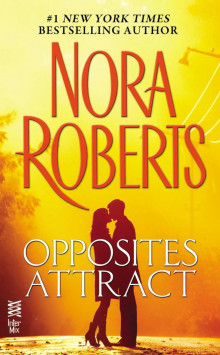 Opposites Attract
Opposites Attract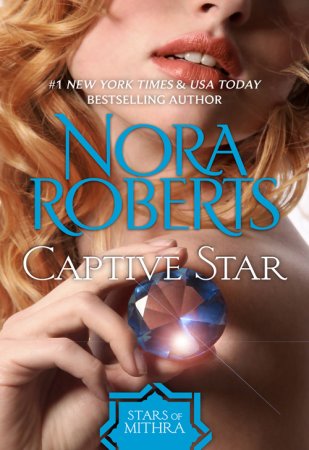 Captive Star
Captive Star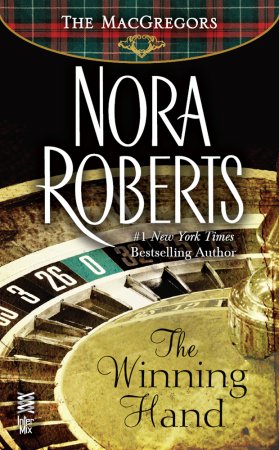 The Winning Hand
The Winning Hand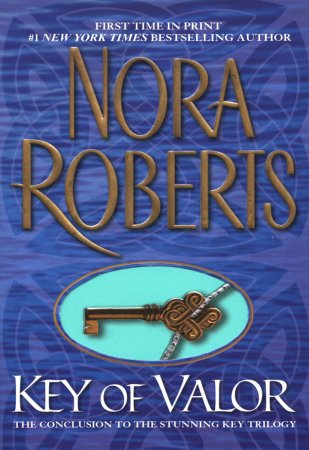 Key of Valor
Key of Valor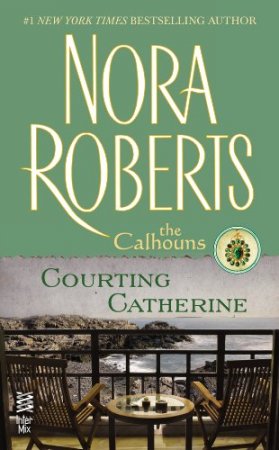 Courting Catherine
Courting Catherine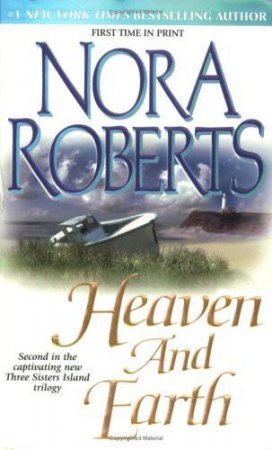 Heaven and Earth
Heaven and Earth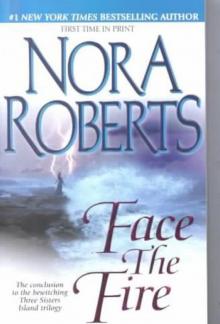 Face the Fire
Face the Fire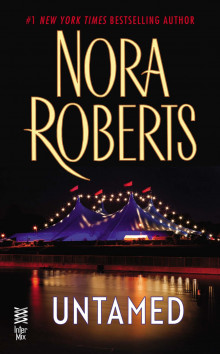 Untamed
Untamed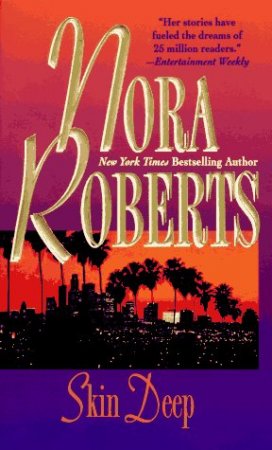 Skin Deep
Skin Deep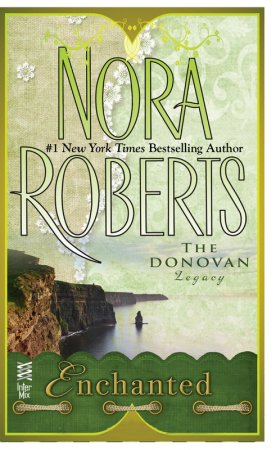 Enchanted
Enchanted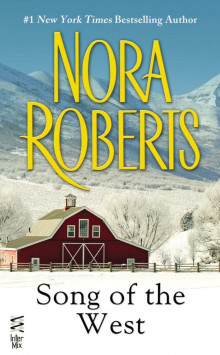 Song of the West
Song of the West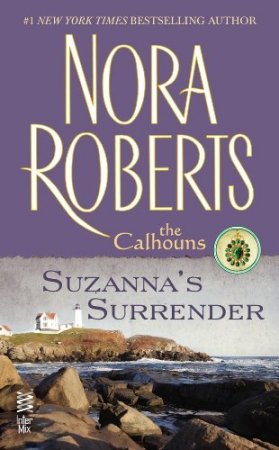 Suzanna's Surrender
Suzanna's Surrender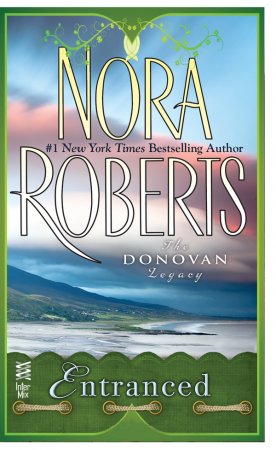 Entranced
Entranced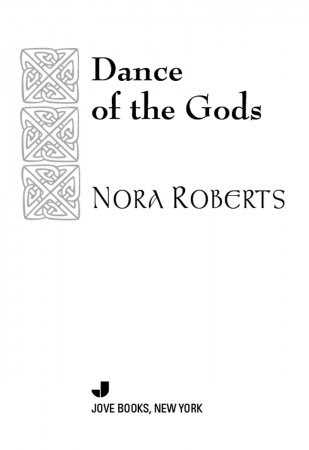 Dance of the Gods
Dance of the Gods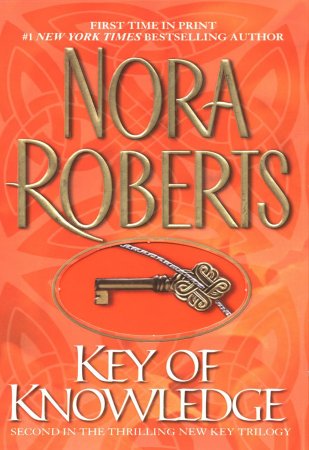 Key of Knowledge
Key of Knowledge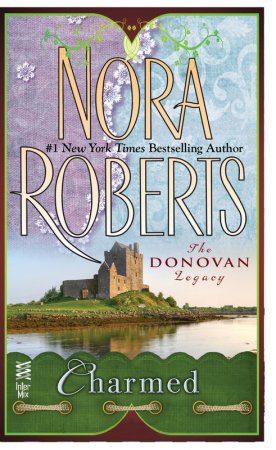 Charmed
Charmed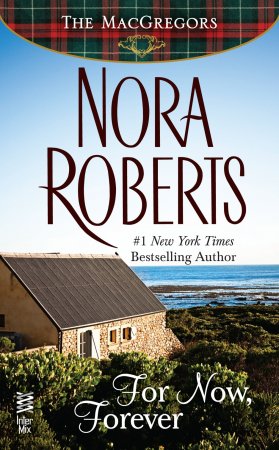 For Now, Forever
For Now, Forever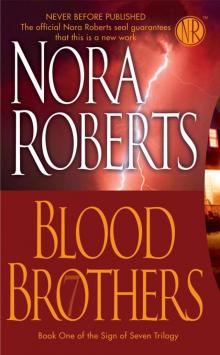 Blood Brothers
Blood Brothers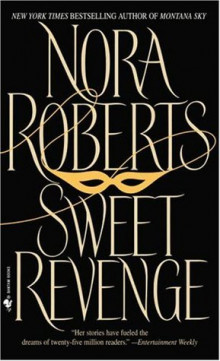 Sweet Revenge
Sweet Revenge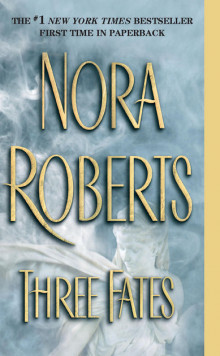 Three Fates
Three Fates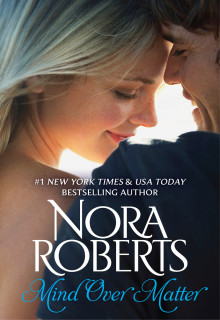 Mind Over Matter
Mind Over Matter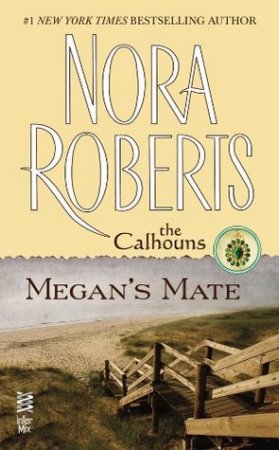 Megan's Mate
Megan's Mate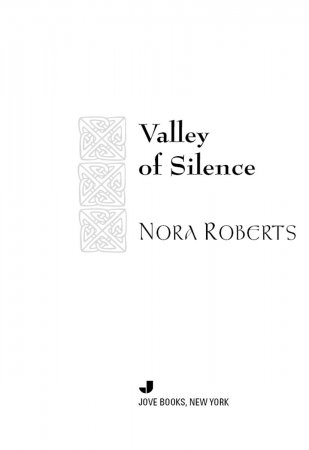 Valley of Silence
Valley of Silence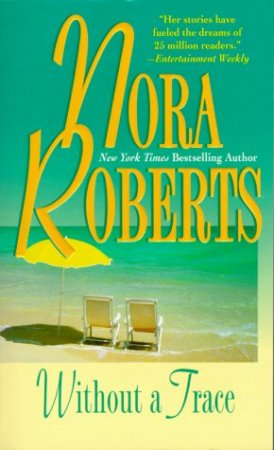 Without A Trace
Without A Trace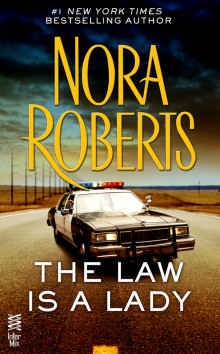 The Law is a Lady
The Law is a Lady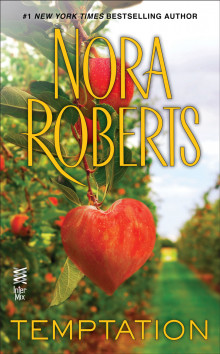 Temptation
Temptation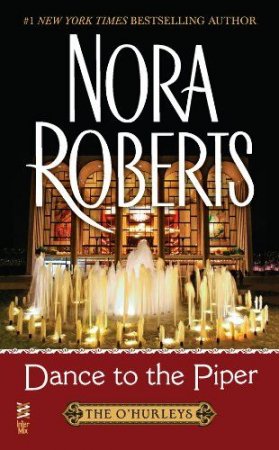 Dance to the Piper
Dance to the Piper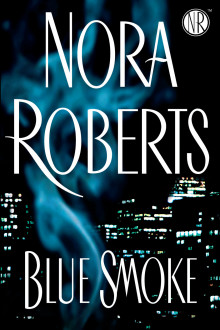 Blue Smoke
Blue Smoke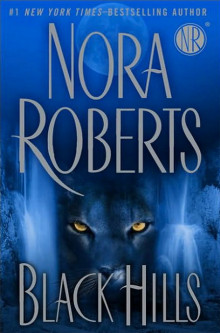 Black Hills
Black Hills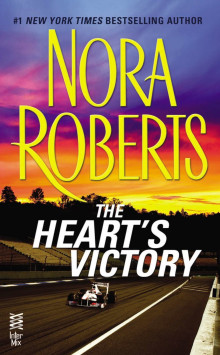 The Heart's Victory
The Heart's Victory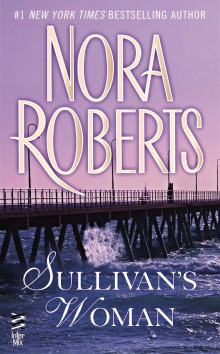 Sullivan's Woman
Sullivan's Woman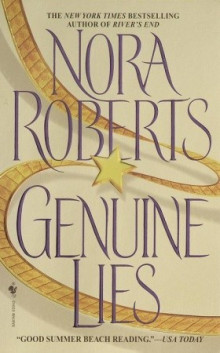 Genuine Lies
Genuine Lies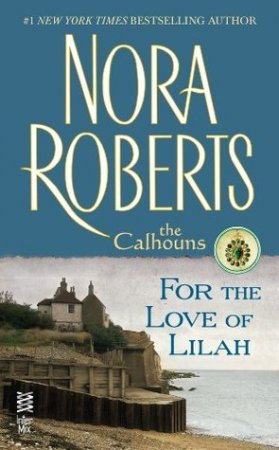 For the Love of Lilah
For the Love of Lilah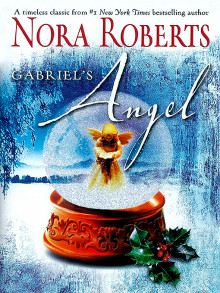 Gabriel's Angel
Gabriel's Angel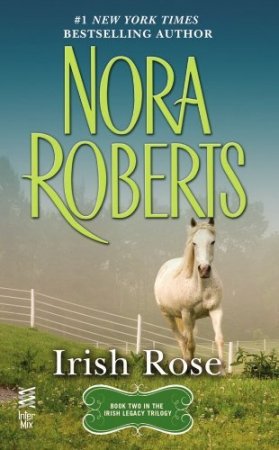 Irish Rose
Irish Rose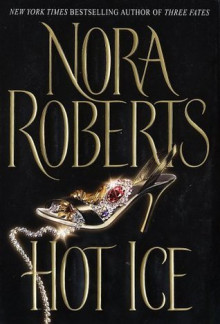 Hot Ice
Hot Ice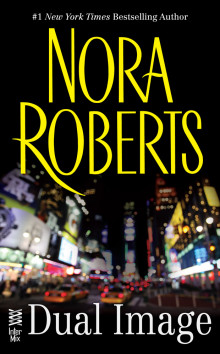 Dual Image
Dual Image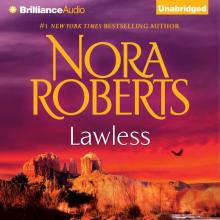 Lawless
Lawless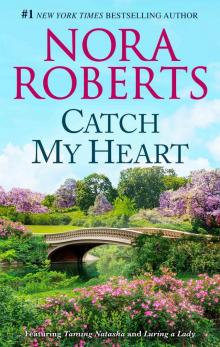 Catch My Heart
Catch My Heart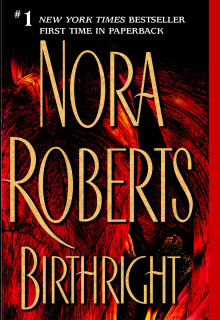 Birthright
Birthright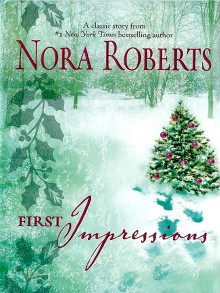 First Impressions
First Impressions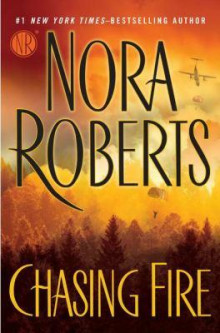 Chasing Fire
Chasing Fire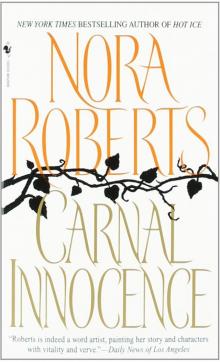 Carnal Innocence
Carnal Innocence Best Laid Plans
Best Laid Plans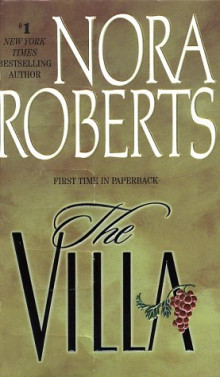 The Villa
The Villa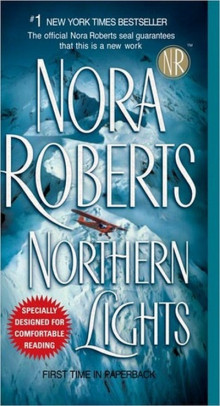 Northern Lights
Northern Lights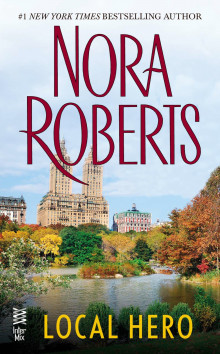 Local Hero
Local Hero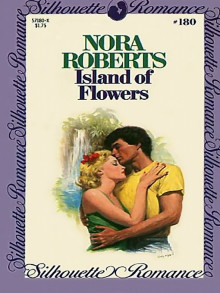 Island of Flowers
Island of Flowers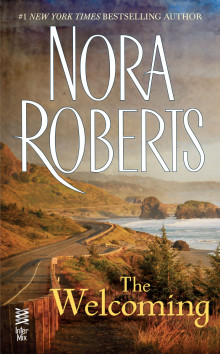 The Welcoming
The Welcoming All I Want for Christmas
All I Want for Christmas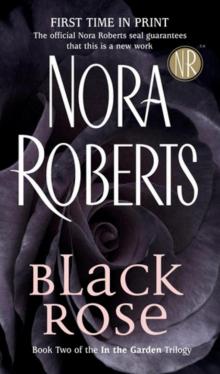 Black Rose
Black Rose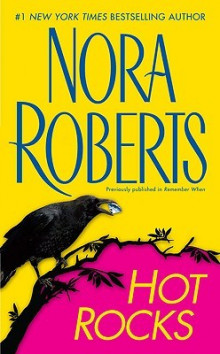 Hot Rocks
Hot Rocks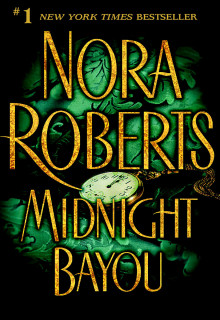 Midnight Bayou
Midnight Bayou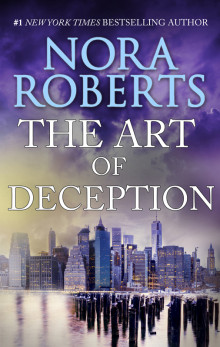 The Art of Deception
The Art of Deception From This Day
From This Day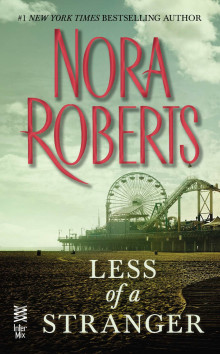 Less of a Stranger
Less of a Stranger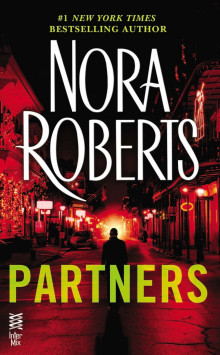 Partners
Partners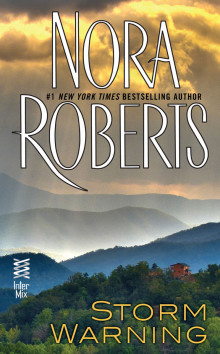 Storm Warning
Storm Warning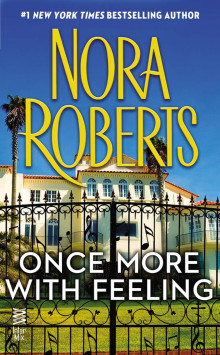 Once More With Feeling
Once More With Feeling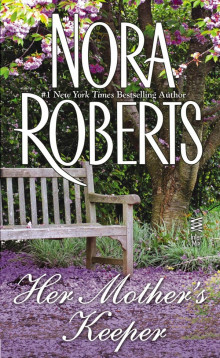 Her Mother's Keeper
Her Mother's Keeper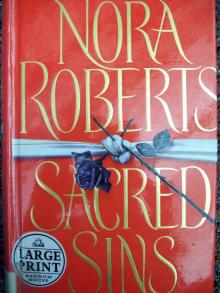 Sacred Sins
Sacred Sins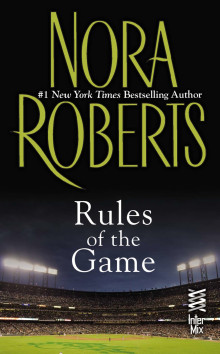 Rules of the Game
Rules of the Game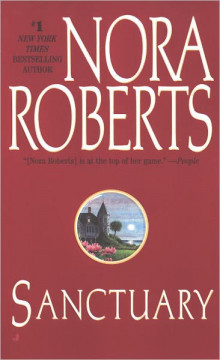 Sanctuary
Sanctuary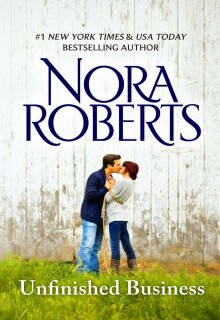 Unfinished Business
Unfinished Business Cordina's Royal Family Collection
Cordina's Royal Family Collection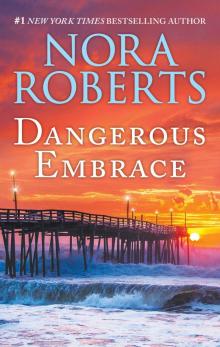 Dangerous Embrace
Dangerous Embrace One Summer
One Summer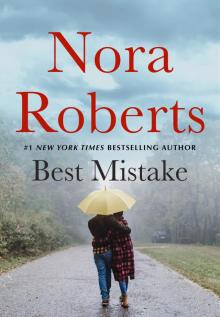 The Best Mistake
The Best Mistake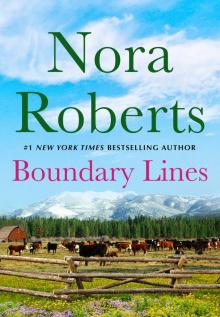 Boundary Lines
Boundary Lines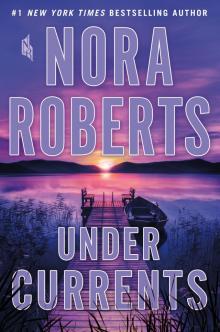 Under Currents
Under Currents The Stanislaski Series Collection, Volume 1
The Stanislaski Series Collection, Volume 1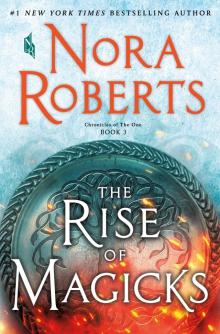 The Rise of Magicks
The Rise of Magicks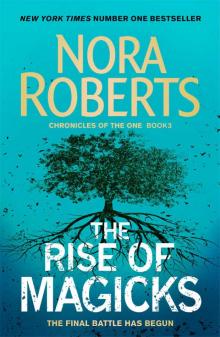 The Rise of Magicks (Chronicles of The One)
The Rise of Magicks (Chronicles of The One)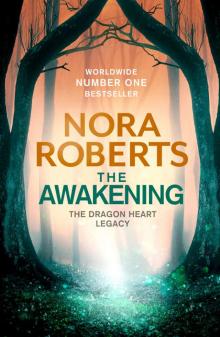 The Awakening: The Dragon Heart Legacy Book 1
The Awakening: The Dragon Heart Legacy Book 1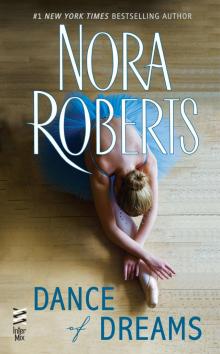 Dance of Dreams
Dance of Dreams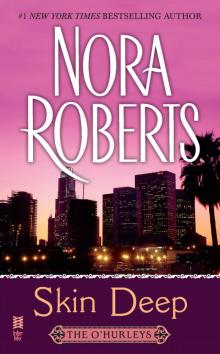 Skin Deep: The O'Hurleys
Skin Deep: The O'Hurleys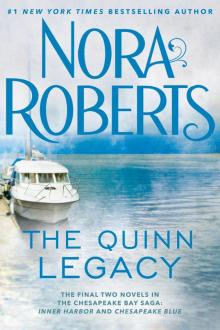 The Quinn Legacy: Inner Harbor ; Chesapeake Blue
The Quinn Legacy: Inner Harbor ; Chesapeake Blue![[Chronicles of the One 03.0] The Rise of Magicks Read online](http://i1.bookreadfree.com/11/chronicles_of_the_one_03_0_the_rise_of_magicks_preview.jpg) [Chronicles of the One 03.0] The Rise of Magicks
[Chronicles of the One 03.0] The Rise of Magicks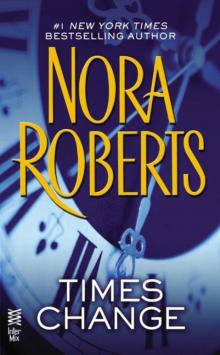 Times Change
Times Change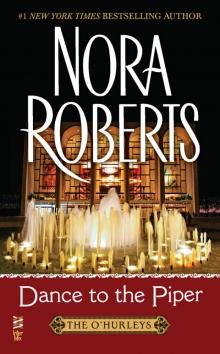 Dance to the Piper: The O'Hurleys
Dance to the Piper: The O'Hurleys Christmas In the Snow: Taming Natasha / Considering Kate
Christmas In the Snow: Taming Natasha / Considering Kate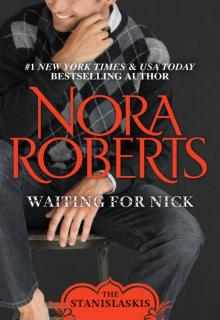 Waiting for Nick
Waiting for Nick Summer Desserts
Summer Desserts Dream 2 - Holding the Dream
Dream 2 - Holding the Dream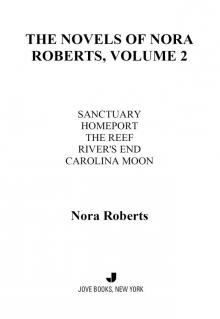 The Novels of Nora Roberts, Volume 2
The Novels of Nora Roberts, Volume 2 In the Garden Trilogy
In the Garden Trilogy Eight Classic Nora Roberts Romantic Suspense Novels
Eight Classic Nora Roberts Romantic Suspense Novels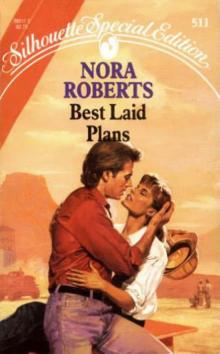 Best Laid Plans jh-2
Best Laid Plans jh-2 From the Heart
From the Heart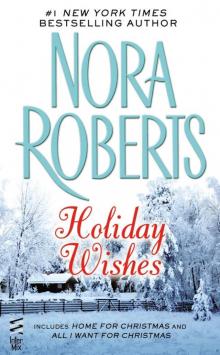 Holiday Wishes
Holiday Wishes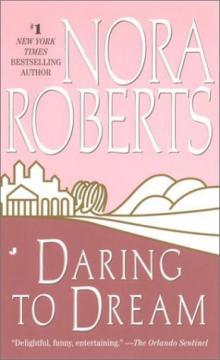 Dream 1 - Daring to Dream
Dream 1 - Daring to Dream Second Nature
Second Nature Summer Pleasures
Summer Pleasures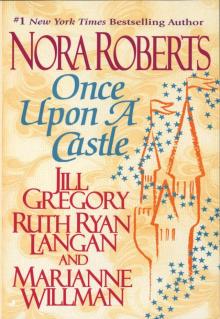 Once Upon a Castle
Once Upon a Castle Stars of Mithra Box Set: Captive StarHidden StarSecret Star
Stars of Mithra Box Set: Captive StarHidden StarSecret Star Impulse
Impulse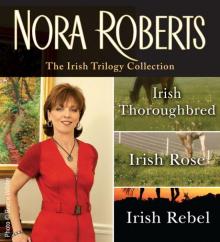 The Irish Trilogy by Nora Roberts
The Irish Trilogy by Nora Roberts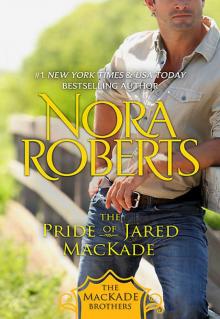 The Pride Of Jared Mackade tmb-2
The Pride Of Jared Mackade tmb-2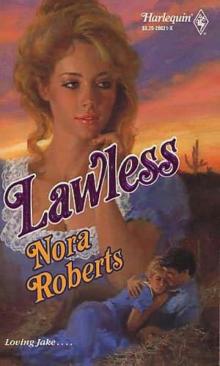 Lawless jh-3
Lawless jh-3 Taming Natasha
Taming Natasha Endless Summer
Endless Summer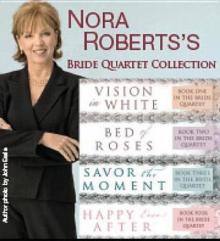 Bride Quartet Collection
Bride Quartet Collection Happy Ever After tbq-4
Happy Ever After tbq-4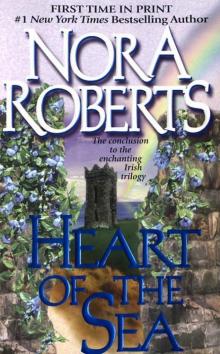 Heart Of The Sea goa-3
Heart Of The Sea goa-3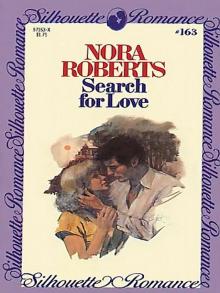 Search for Love
Search for Love Once upon a Dream
Once upon a Dream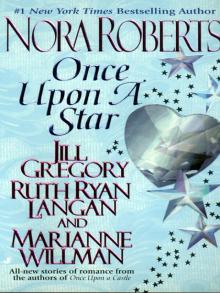 Once Upon a Star
Once Upon a Star Dream Trilogy
Dream Trilogy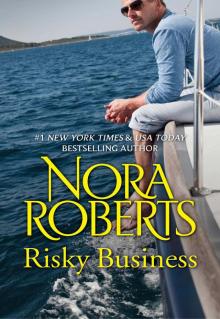 Risky Business
Risky Business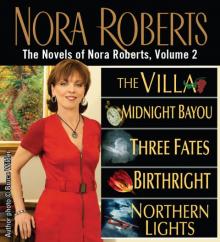 The Novels of Nora Roberts, Volume 3
The Novels of Nora Roberts, Volume 3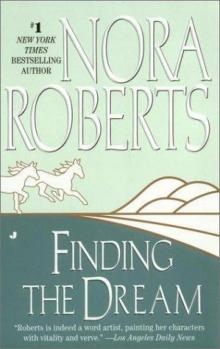 Dream 3 - Finding the Dream
Dream 3 - Finding the Dream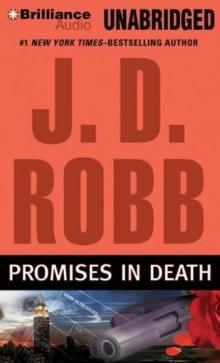 Promises in Death id-34
Promises in Death id-34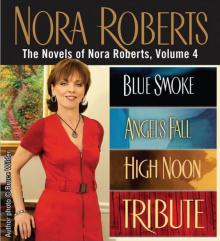 The Novels of Nora Roberts, Volume 4
The Novels of Nora Roberts, Volume 4 The Perfect Hope ib-3
The Perfect Hope ib-3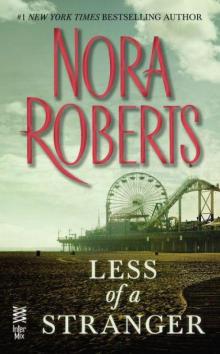 Less than a Stranger
Less than a Stranger Savour the Moment: Now the Big Day Has Finally Arrived, It's Time To...
Savour the Moment: Now the Big Day Has Finally Arrived, It's Time To... Convincing Alex
Convincing Alex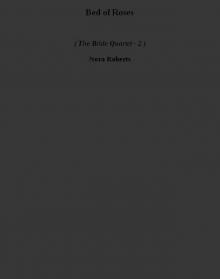 Bed of Roses tbq-2
Bed of Roses tbq-2 Savour the Moment tbq-3
Savour the Moment tbq-3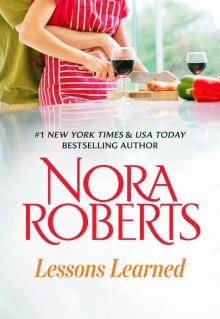 Lessons Learned
Lessons Learned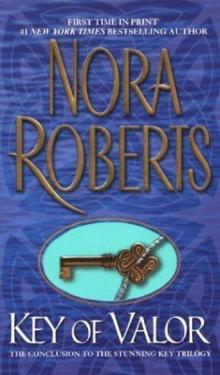 Key Of Valor k-3
Key Of Valor k-3 Red lily gt-3
Red lily gt-3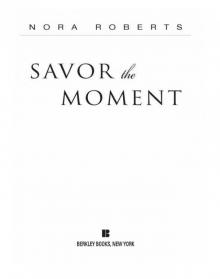 Savor the Moment
Savor the Moment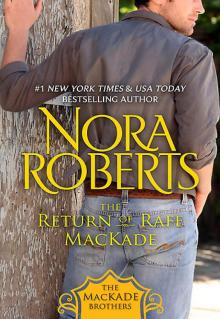 The Return Of Rafe Mackade tmb-1
The Return Of Rafe Mackade tmb-1 For The Love Of Lilah tcw-3
For The Love Of Lilah tcw-3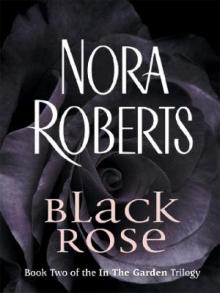 Black Rose gt-2
Black Rose gt-2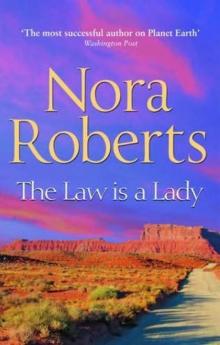 Novels: The Law is a Lady
Novels: The Law is a Lady Chesapeake Bay Saga 1-4
Chesapeake Bay Saga 1-4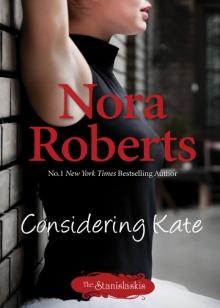 Considering Kate
Considering Kate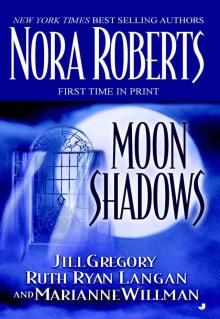 Moon Shadows
Moon Shadows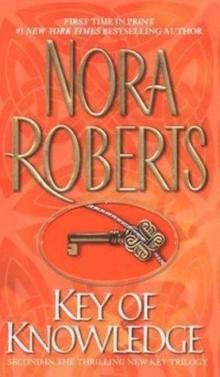 Key of Knowledge k-2
Key of Knowledge k-2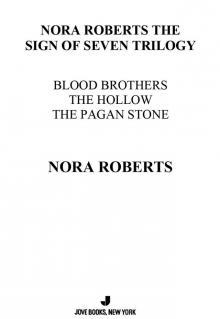 The Sign of Seven Trilogy
The Sign of Seven Trilogy Once Upon a Kiss
Once Upon a Kiss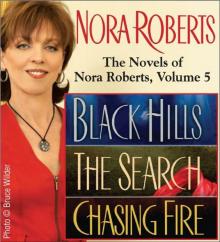 The Novels of Nora Roberts, Volume 5
The Novels of Nora Roberts, Volume 5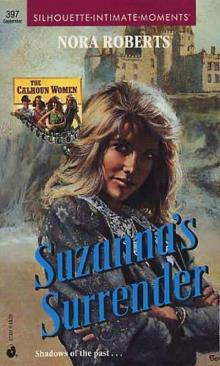 Suzanna's Surrender tcw-4
Suzanna's Surrender tcw-4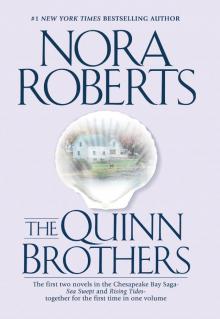 The Quinn Brothers
The Quinn Brothers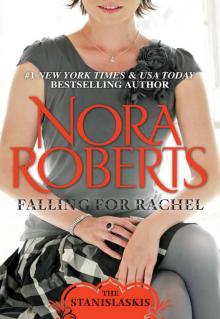 Falling for Rachel
Falling for Rachel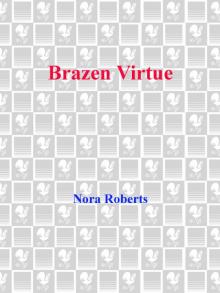 Brazen Virtue
Brazen Virtue Time Was
Time Was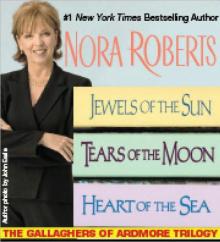 The Gallaghers of Ardmore Trilogy
The Gallaghers of Ardmore Trilogy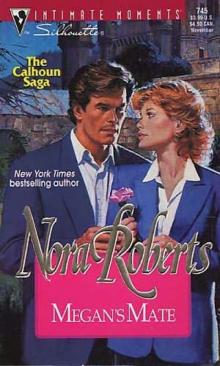 Megan's Mate tcw-5
Megan's Mate tcw-5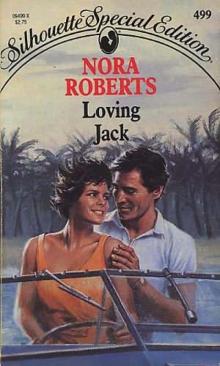 Loving Jack jh-1
Loving Jack jh-1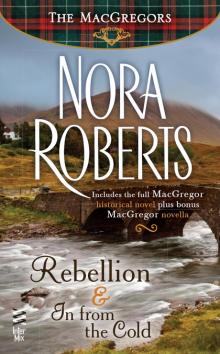 Rebellion & In From The Cold
Rebellion & In From The Cold Blue Dahlia gt-1
Blue Dahlia gt-1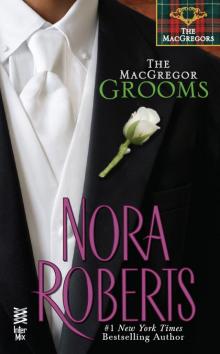 The MacGregor Grooms
The MacGregor Grooms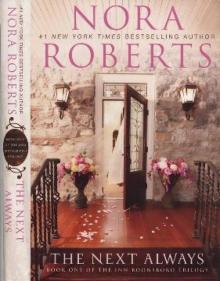 The Next Always tibt-1
The Next Always tibt-1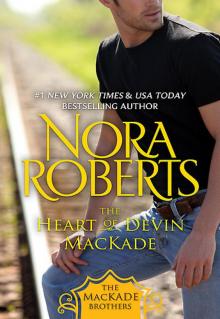 The Heart Of Devin Mackade tmb-3
The Heart Of Devin Mackade tmb-3 The Novels of Nora Roberts Volume 1
The Novels of Nora Roberts Volume 1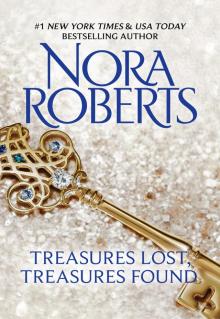 Treasures Lost, Treasures Found
Treasures Lost, Treasures Found Nora Roberts's Circle Trilogy
Nora Roberts's Circle Trilogy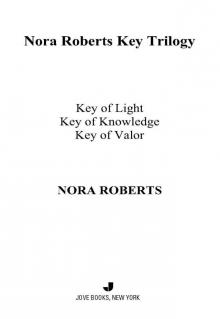 The Key Trilogy
The Key Trilogy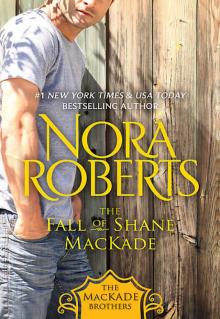 The Fall Of Shane Mackade tmb-4
The Fall Of Shane Mackade tmb-4 A Will And A Way
A Will And A Way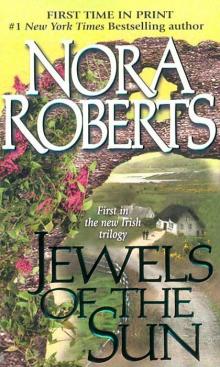 Jewels of the Sun goa-1
Jewels of the Sun goa-1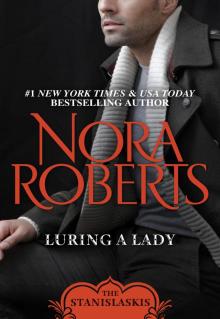 Luring a Lady
Luring a Lady